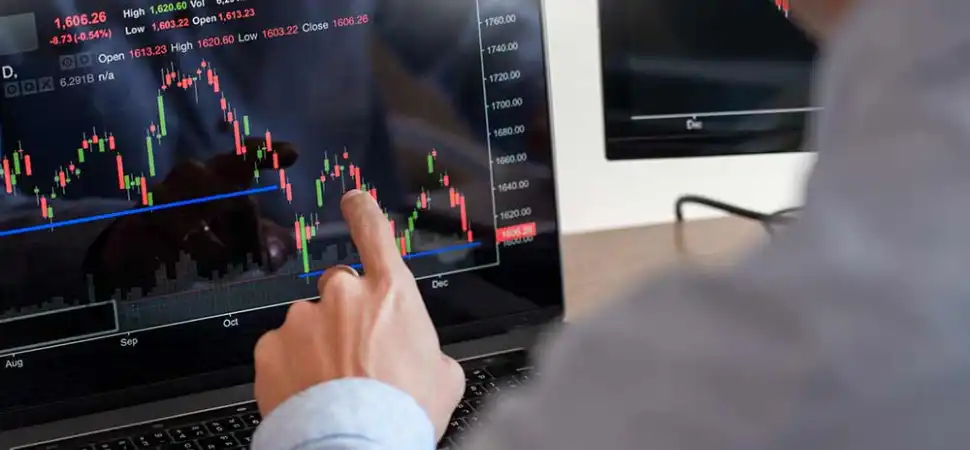18.07
Share ArticleTop 5 popular mistakes when trading Forex

All people who join the ranks of financial traders undoubtedly do so with the intention of making money. However, only a few of them end up making a profit. What is it that prevents so many people from succeeding? What are the reasons that differentiate winners from losers? We will help answer these questions and provide a list of the most common mistakes that Forex traders make in the Forex market.
1. Lack of training
As a rule, most beginners read very few books and articles, do little training on demo accounts and forget that they are dealing with a job that can take several years to master. In fact, novice traders know so little about trading that they often don't even know where to begin. So how to avoid the most obvious and devastating mistake in trading? It is very simple: learn! Read, attend webinars, practice on a demo account. Do whatever it takes. If you don't have the time, find the time! You never know when the moment of revelation will come and how many such moments you will need to become consistently profitable.
2. Failure to stick to your trading plan
You've probably heard hundreds of times about the positive effects of having a plan. Forex trading is no exception, and not having a trading plan is one of the common mistakes Forex traders make. Perhaps the reason for this mistake lies in the lack of a clear understanding of what a good trading plan should look like. A trading plan is a strict set of rules, half of which are derived from the trading strategy itself and the other half from the money management policy. It is possible to add as many points to the plan as the trader sees fit. A trading plan is a lot like a list of things not to do when drunk, for example. Everyone has his own list of things to avoid in life, so we recommend to stick to it in trading.
3. Failure to follow money management rules
Things can quickly get hectic in the Forex market because brokers have a lot of leverage and most novice traders lag behind in money management discipline. The combination of these two factors makes trading dangerous and risky.
Traders should keep a few key aspects in mind to avoid making serious Forex trading mistakes. Firstly, it is important to invest only the capital that you can afford to lose. You should also determine the maximum percentage of the total investment amount that you can lose in a single trade. It is necessary to set a limit on the number of simultaneously open trades. Analysing the strategy for the promised profit/loss ratio is also critical.
The strategy should meet the established risk/reward ratio per trade, but money management policies can get complicated as they depend on the strategy. In some cases, it is better to have a strategy that promises a potential loss of $1,000 dollars and a probable profit of $500 dollars on 8 out of 10 trades, and sometimes it is better to have a strategy that promises a loss of $500 and a profit of $1,000 but works out 2 times out of 5.
4. Setting the wrong goals
What's the best way to approach trading - do everything by the book, even if it potentially means you'll make less money, or do as your soul dictates while there's a chance to make more? This is a difficult question, as the most beneficial thing for both the trader and their account balance is to not think about money at all. If a trader's only goal, especially in the early stages of their trading career, is to make money, this will ultimately be the reason for their failure. This approach causes traders to break their own rules, their own trading plan. In some rare cases, breaking the rules can bring big profits, but in the long run it always affects the account balance. As a rule, this problem most often manifests itself in the following ways: overtrading and overanalysing.
.webp)
5. A confusing goal
Trading in the financial markets is a business and most people treat it as a hobby. Confusing the purpose for which you want to trade is one of the mistakes to avoid when trading Forex. Firstly, it affects your level of commitment to trading. Secondly, it determines your attitude towards the money you invest. Remember that entertainment is about having fun and business is about making money.
In trading, you invest money to make money, which makes this type of employment a business. If you expect to make money consistently in Forex, act like an entrepreneur. Studying, researching, planning, following plans, keeping records of your progress and protecting your investment are your best allies. Failing to follow these simple techniques is one of the worst mistakes Forex traders can make.
How to avoid overtrading and manage your capital
The cause of overtrading is usually undercapitalisation, which causes a trader to use too much volume in relation to their account balance. Forex trading is done on high leverage accounts and this, without enough money, only increases the chances of failure. A trader should always decide in advance how much money he is willing to risk in each trade. A cautious money management policy may allow you to make a few mistakes that are inevitable in the learning process.
The second problem of overtrading is trading addiction. Trading in the financial markets, especially in short-term intervals, can be a very addictive activity. When the market moves, money begins to flow in real time, which undoubtedly acts as an exciting experience. It is as if the market wants people to trade it, however you should not let this illusion dominate your trading. Chasing money can have negative consequences. Traders may deviate slightly from their entry and exit strategy when they should be patient and calm. Over-analysing is a problem that goes hand in hand with over-trading.
Perhaps one of the worst mistakes traders make is thinking that they are in control of the market, when in fact they are not. In trading you have to be patient, be able to wait and see when the market price is where you want it to be and only then begin trading. Your strategy tells you exactly what market conditions to expect. If you don't see those conditions, then they just haven't happened. This doesn't mean that you missed those trades and should look for them on shorter timeframes or that there are problems in your strategy. Once you start thinking about waiting for the right market conditions and saving your money rather than losing it, you'll be much better off.
Conclusion
Forex trading requires discipline, knowledge and the ability to avoid common mistakes. Avoiding them will help you build a solid foundation for stable and profitable trading. Remember that success in trading requires patience, planning and the ability to analyse your mistakes. By following these rules, you can increase your chances of stable profits and long-term success in the Forex market.
FAQ
Set investment limits, define acceptable risks and follow a money management strategy.
Overtrading can lead to large losses due to making unwise decisions and not following the plan.
A good trading plan includes clear rules for entering and exiting trades, risk and money management. It helps a trader make informed decisions and avoid impulsive actions.
Develop and stick to a clear plan, learn to manage your emotions and remember to take breaks to recover.
Use limit orders, set stop losses and diversify your portfolio to reduce risk and protect your capital.
.webp)

Reviews